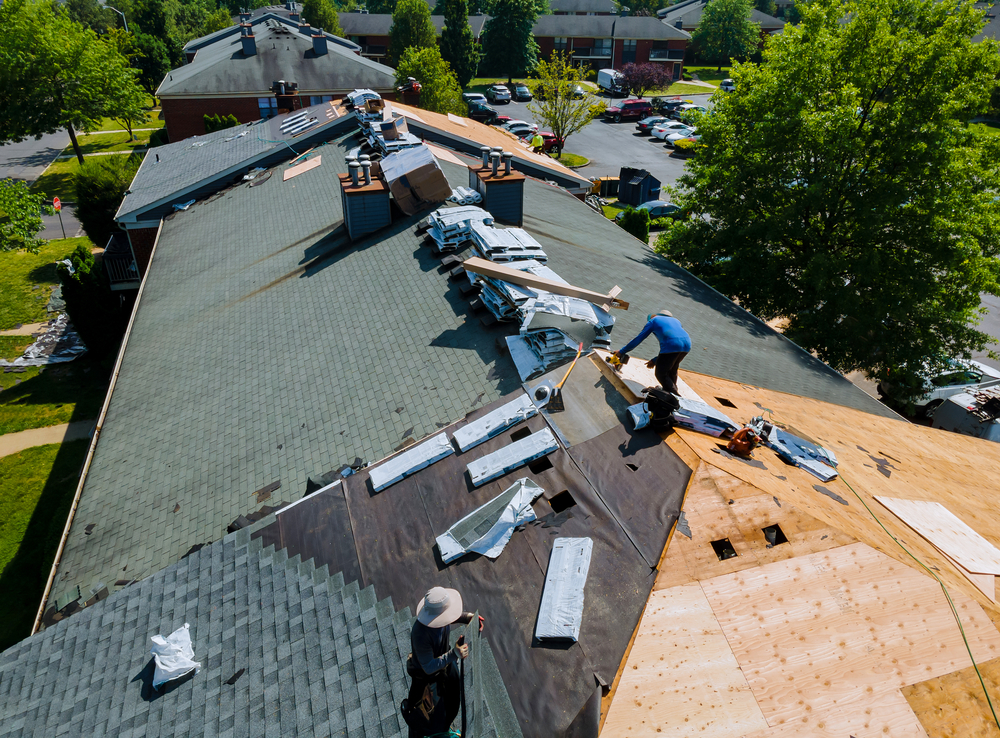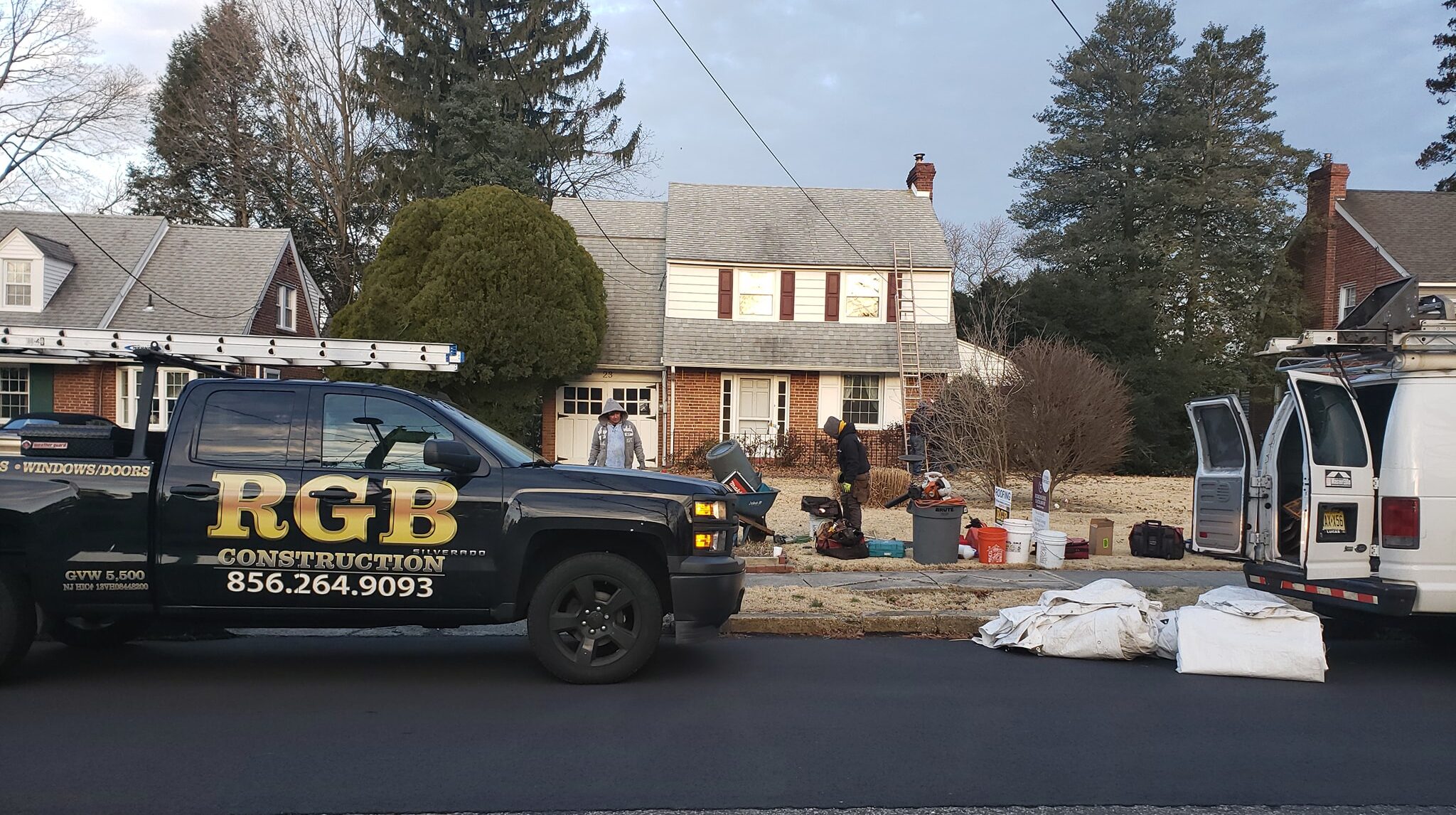If you are planning to install a new roof for your home in New Jersey, you may be wondering what to expect during the process. A roof installation is a major home improvement project that requires careful planning, preparation, and execution. It also involves working with a qualified and reputable roofing contractor who can ensure a safe, efficient, and quality result.
In this article, we will explain what to expect during a roof installation in New Jersey, from the initial consultation to the final inspection. We will also share some tips on how to prepare for your roof installation and how to choose the best roofing contractor for your project.
Key takeaways
- A roof installation in New Jersey is a major home improvement project that requires careful planning, preparation, and execution.
- A roof installation in New Jersey involves four main steps: the initial consultation, the preparation, the installation, and the inspection.
- A roof installation in New Jersey can take anywhere from one to five days, depending on the size, slope, and complexity of your roof, the type and quality of your roofing material, the weather and climate conditions, and the availability and skill of the roofing crew.
- A roof installation in New Jersey can improve the appearance, value, and performance of your home, as well as protect you from the elements and save you money on energy bills.
- A roof installation in New Jersey requires working with a qualified and reputable roofing contractor who can ensure a safe, efficient, and quality result.
Comparison table
| Step | Description | Duration |
|---|---|---|
| Initial consultation | The roofing contractor visits your home, inspects your roof, discusses your options, and provides you with an estimate and contract | 1 to 2 hours |
| Preparation | You and the roofing contractor sign the contract, obtain the permits, order and deliver the materials, schedule the project, inform the neighbors and utilities, and clear and protect the work area | 1 to 2 days |
| Installation | The roofing contractor and their crew remove the old roof, inspect and repair the roof deck and flashing, install the underlayment and ventilation system, install the shingles, tiles, or panels, install the accessories, and clean and inspect the work area and the new roof | 1 to 5 days |
| Inspection | You and the roofing contractor conduct a final walkthrough and review of the project, test the functionality and durability of the new roof, identify and correct any defects or errors, complete the payment and paperwork, and provide feedback and referrals | 1 to 2 hours |
The Initial Consultation
The first step of a roof installation in New Jersey is the initial consultation. This is when you contact a roofing contractor and schedule a free estimate and consultation for your project. During the initial consultation, the roofing contractor will:
- Visit your home and inspect your existing roof and attic
- Measure your roof and calculate the materials and labor required
- Discuss your roofing needs, preferences, and budget
- Recommend the best roofing options and solutions for your home
- Provide you with a written estimate and contract
- Answer your questions and address your concerns
The initial consultation is a great opportunity for you to get to know your roofing contractor and evaluate their professionalism, expertise, and reputation. You should ask them about their license, insurance, certification, experience, references, warranty, and guarantee. You should also compare their estimate and contract with other roofing contractors and look for any discrepancies or red flags.
The Preparation
The second step of a roof installation in New Jersey is the preparation. This is when you and your roofing contractor get ready for the project and make sure everything is in order. The preparation involves:
- Signing the contract and paying the deposit
- Obtaining the necessary permits and licenses from the local authorities
- Ordering and delivering the roofing materials and equipment
- Scheduling the start and end date of the project
- Informing your neighbors and utility companies about the project
- Clearing and protecting the work area and surrounding areas
- Removing any obstacles or hazards that may interfere with the project
The preparation is an important step for ensuring a smooth and successful roof installation. You should communicate and coordinate with your roofing contractor and follow their instructions and recommendations. You should also prepare yourself and your family for the project and expect some noise, dust, and disruption during the process.
The Installation
The third step of a roof installation in New Jersey is the installation. This is when your roofing contractor and their crew perform the actual work and install your new roof. The installation involves:
- Removing the old roof and disposing of the debris
- Inspecting and repairing the roof deck and flashing
- Installing the roof underlayment and ventilation system
- Installing the roof shingles, tiles, or panels
- Installing the roof accessories, such as ridge caps, vents, skylights, or solar panels
- Cleaning and inspecting the work area and the new roof
The installation is the most complex and labor-intensive step of a roof installation. It can take anywhere from one to five days, depending on the size, slope, and complexity of your roof, the type and quality of your roofing material, the weather and climate conditions, and the availability and skill of the roofing crew. You should monitor and supervise the installation and report any issues or problems to your roofing contractor.
The Inspection
The fourth and final step of a roof installation in New Jersey is the inspection. This is when you and your roofing contractor check the quality and performance of your new roof and make sure everything is done correctly and according to the contract. The inspection involves:
- Conducting a final walkthrough and review of the project
- Testing the functionality and durability of the new roof
- Identifying and correcting any defects or errors
- Completing the payment and paperwork
- Providing feedback and referrals to your roofing contractor
The inspection is the last step for ensuring a satisfactory and long-lasting roof installation. You should inspect your new roof carefully and thoroughly and look for any signs of damage, leakage, or poor workmanship. You should also ask for a copy of the warranty and guarantee and read them carefully before signing the contract. You should also thank and reward your roofing contractor for a job well done.

How to Choose the Best Roofing Contractor for Your Roof Installation in New Jersey
Choosing the best roofing contractor for your roof installation in New Jersey is crucial for getting the best value and quality for your money. You should look for a roofing contractor who is:
- Licensed and insured by the state of New Jersey
- Certified by the National Roofing Contractors Association (NRCA), the Better Business Bureau (BBB), and the GAF Master Elite Contractor Program
- Experienced and skilled in roof installation
- Offering free estimates and consultations
- Providing high-quality materials and workmanship
- Offering lifetime warranties and guarantees
- Providing flexible financing options
- Providing fast and efficient service
- Providing friendly and professional staff
- Providing customer satisfaction and referrals
One of the best roofing contractors in New Jersey that meets all these criteria and more is RGB Construction. RGB Construction is a family-owned and operated roofing company that has been serving the New Jersey community since 2007. We have the experience, expertise, and equipment to handle any roof installation project, no matter how big or small. We offer free estimates and consultations, high-quality materials and workmanship, lifetime warranties and guarantees, flexible financing options, fast and efficient service, friendly and professional staff, customer satisfaction and referrals. Contact us today and let us take care of your roof installation needs.
FAQs
-
Q: How much does a roof installation in New Jersey cost?
- A: The cost of a roof installation in New Jersey varies depending on several factors, such as the size, slope, and complexity of your roof, the type and quality of your roofing material, the labor and materials required, the location and accessibility of your property, and the availability and demand of roofing contractors. The average cost of a roof installation in New Jersey ranges from $7,000 to $20,000, depending on these factors.
-
Q: How can I prepare for a roof installation in New Jersey?
- A: You can prepare for a roof installation in New Jersey by doing the following:
- Review and sign the contract and pay the deposit
- Make arrangements for your family, pets, and valuables during the project
- Remove any fragile or valuable items from your attic, walls, and ceilings
- Cover or move any furniture or appliances that may be affected by dust or debris
- Provide access to power outlets and water sources for the roofing crew
- Park your vehicles away from the work area and driveway
- Stay away from the work area and keep children and pets indoors
-
Q: How can I choose the best roofing material for my home in New Jersey?
- A: You can choose the best roofing material for your home in New Jersey by considering factors such as the style, design, color, and budget of your home, as well as the weather and climate of New Jersey. You should also look for roofing materials that are durable, long-lasting, energy-efficient, fire-resistant, and hail-resistant. Some of the best roofing materials for New Jersey homes are metal, slate, tile, and rubber.
-
Q: How long will my new roof last in New Jersey?
- A: The lifespan of your new roof in New Jersey depends on several factors, such as the type and quality of your roofing material, the installation and workmanship of your roofing contractor, the maintenance and care of your roof, and the weather and climate of New Jersey. Different roofing materials have different lifespans and characteristics. For example, asphalt shingles typically last 15 to 30 years, while metal roofs can last 40 to 70 years. Slate, tile, and rubber roofs can last even longer, up to 100 years or more.
-
Q: What are the benefits of a roof installation in New Jersey?
- A: The benefits of a roof installation in New Jersey are:
- Improving the appearance and value of your home
- Enhancing the performance and functionality of your roof
- Protecting your home from the weather and climate of New Jersey
- Saving money on energy bills and maintenance costs
- Increasing your comfort and safety
-
Q: What are the risks of a roof installation in New Jersey?
- A: The risks of a roof installation in New Jersey are:
- Hiring an unqualified or unscrupulous roofing contractor who may damage your roof or home, overcharge you, or scam you
- Experiencing delays, disruptions, or accidents during the project
- Encountering unexpected problems or issues during or after the project
- Having a poor-quality or defective roof that may leak, crack, or fail
- Having a warranty or guarantee that is not honored or enforced
Facts and Statistics
- According to the U.S. Department of Energy (DOE), a cool roof can reduce the surface temperature of a roof by up to 50°F and lower the cooling energy use of a building by 10% to 15%. This can save money, energy, and greenhouse gas emissions, as well as improve the comfort and health of the occupants.
- According to the National Association of Home Builders (NAHB), the average lifespan of a roof in the U.S. is 20 years, but it can vary widely depending on the type of roofing material, the quality of installation and maintenance, and the climate and weather conditions. For example, asphalt shingles can last 15 to 30 years, wood shingles can last 20 to 25 years, metal roofs can last 40 to 70 years, and slate, tile, and rubber roofs can last 50 to 100 years or more.
- According to the National Roofing Contractors Association (NRCA), the most common roofing material in the U.S. is asphalt shingles, which account for about 80% of the residential roofing market. However, other roofing materials, such as metal, slate, tile, and rubber, are gaining popularity due to their durability, longevity, energy efficiency, and environmental friendliness.
- According to the New Jersey Department of Community Affairs (DCA), the New Jersey Uniform Construction Code (NJUCC) requires that all roofing contractors in New Jersey have a valid license from the New Jersey Division of Consumer Affairs (DCA) and a valid registration from the New Jersey Department of Banking and Insurance (DOBI). The NJUCC also sets the minimum standards and requirements for roofing installations and repairs in New Jersey.








